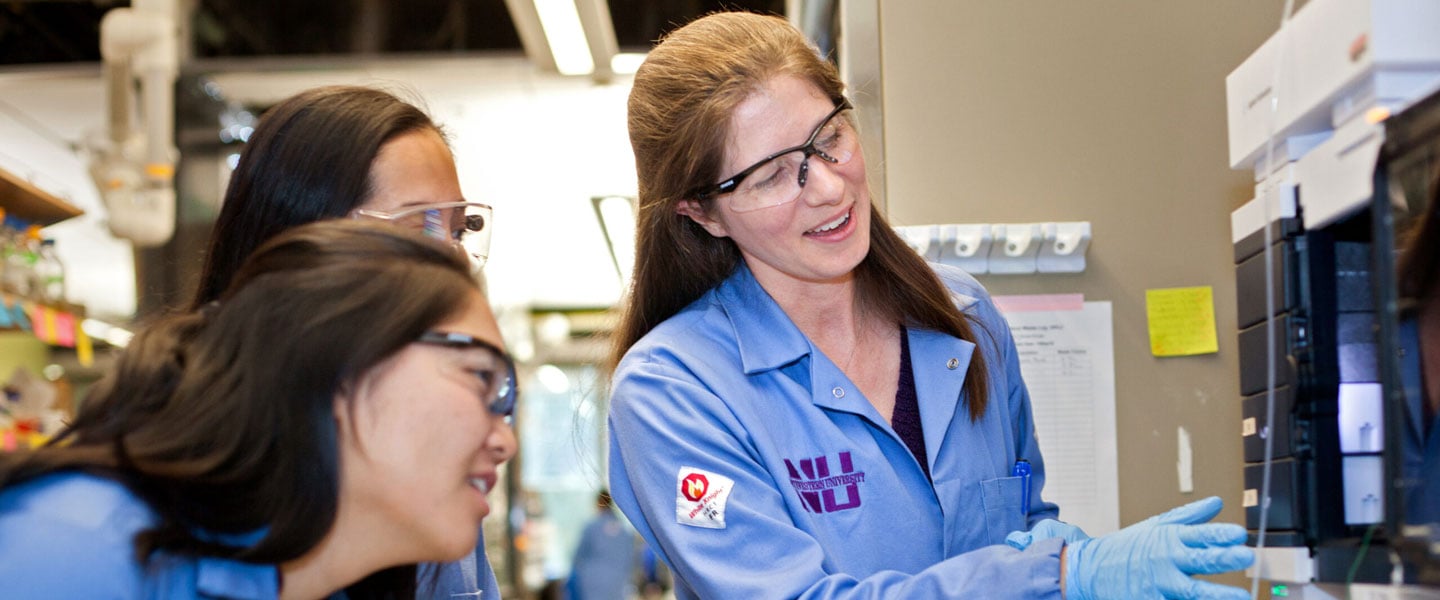
Research Centers
Fuel the discoveries that change the world
Northwestern is committed to fostering translational research and interdisciplinary innovation that can improve the quality of human life. It is among the strategic priorities of the University to advance discovery in areas such as decarbonization and renewable energy, artificial intelligence, and the biosciences to better understand our world and solve some of its most pressing challenges.
University Research Institutes and Centers (URICs) are a critical component of this mission. These world-class knowledge hubs spur high-impact, collaborative breakthroughs that can lead to great social benefits. More than 30 URICs draw on the considerable depth of expertise from across the University, leading the way in domains as varied as nanotechnology, astrophysics, synthetic biology, data science, and more.
Gifts at any level in support of Northwestern URICs helps to
- enable faculty to pursue foundational early-stage research;
- foster the development of new technologies and methods to expand understanding;
- nurture talented undergraduate and graduate students working to solve challenges in health, the environment, and more.
Your generosity will help us reach a new level of distinction in areas where we can make the greatest impact. Both annual giving and major gifts provide critical resources for ongoing research and new endeavors. Among the URICs that you can choose to support are:
- Center for Interdisciplinary Exploration and Research in Astrophysics (CIERA), which is connecting computer science, statistics, engineering, planetary science, education, and other disciplines to transform our understanding of the universe.
- Center for Synthetic Biology (CSB), which builds new biological systems using tools and concepts from physics, engineering, and computer science.
- Chemistry of Life Processes Institute (CLP), which is revolutionizing how we identify and treat neurodegenerative disorders, cancers, and other diseases by deepening our understanding of human proteins.
- Institute for Policy Research (IPR), which is stimulating social science research on public policy issues such as disparities in health and education, and disseminating findings to scholars, policy makers, and the public.
- Paula M. Trienens Institute for Sustainability and Energy, which serves as the hub for transformational science, technology, education, and policy for sustainability and renewable energy.
